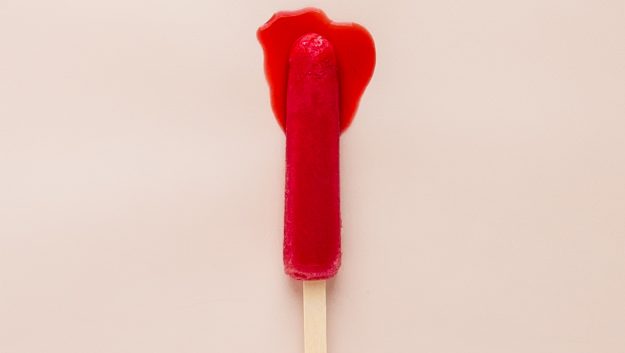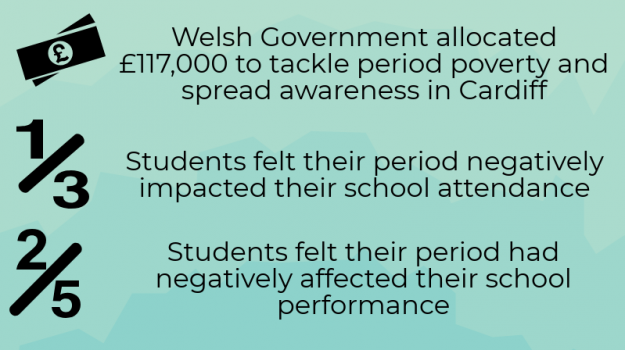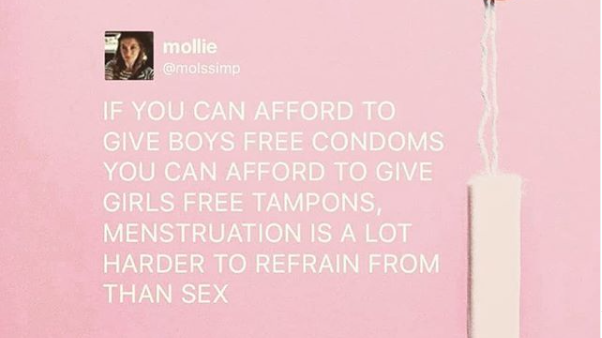Cardiff announced free sanitary products for all schools beginning next year. Is the world approaching free periods?

Over 137,700 children in the UK have missed school because of period poverty and 68% said they were not able to pay attention in school or class while menstruating showed surveys.
Locally, research by the Cardiff Council showed that while most Cardiff schools provided students free access to sanitary products, the students were either unaware of it or had to ask for it. They said they would be more comfortable with not having to ask.
The Cardiff Labour Group announced their scheme to promote period dignity in schools which will have dispensers providing free sanitary products installed in bathrooms freely available to all schoolchildren who need them.

After the success of the Chancellor’s spring statement which announced free sanitary products in secondary schools and colleges, while activists in England still fight for removing period poverty from primary schools, the Cardiff Council will focus on removing period stigma and period poverty from both primary and secondary schools starting spring term 2019.
Schools will also include a more detailed period education from the next semester.
However, period poverty has existed forever, why is the UK acknowledging and working towards removing it now?
“Firstly fantastic activists and campaigners have completely shifted the conversation. Secondly, we have more and more women getting into politics at a local and national level. If your politicians all look the same and think the same then they can’t think outside the box, they can’t think about issues or policies that might affect others the same way that those who have lived the experience can.
Thirdly, it’s the everyday conversations that women and girls are having the courage to have, that are changing things. Any woman who feels able to openly talk about her period – whether it’s to colleagues friends, family, online – is contributing to a wave of change politically and societally.” Said MP Layla Moran.
Amika George was a 16 year old, when she saw others suffering from period poverty and decided to make a change. She launched a campaign called ‘Free Periods’ to provide free sanitary products in schools. In March 2019, 271,000 people had signed her petition and 2,000 people protested with her to bring an end to period poverty.
Around 5,900 women in the UK were recorded to collect menstrual products from charities, food banks, and shelters each month.
“Period poverty can cause all kinds of issues for students — not being able to attend school due to not having the products they need, potential health issues from using products far too long and feelings of shame and embarrassment,” said Bloody Good Period, an organisation that donates sanitary products to places where people need them across the UK.
In Cardiff, a student-led group called Periods in Poverty collects and donates sanitary products to charities and other places to end period poverty. They also advocate donation points in female and gender-neutral toilets.
Lead Volunteer Olivia Thomas said, “We think that everyone should be entitled to free access to sanitary wear. Period poverty robs people of their dignity and choice.”
In the UK, nearly half of people getting their period for the first time don’t know what is happening to them. Sixty per cent of them felt scared, 58% felt embarrassed and nearly half said they didn’t feel confident enough to tell anyone about their period.
These campaigners and activists not only want to remove period poverty, but also take steps to educate others regarding periods.
Hey Girls UK is a group that educates people (male and female) about periods through card packs, contributing to ending period poverty. They recently launched a campaign called pads4dads which made fathers and male guardians aware of and more comfortable with periods.
The female participation in politics has also truly made a difference.
Scotland became the world leader in removing period poverty when MSP Monica Lennon’s bill to provide free sanitary products to all those in need got passed by all five Holyrood parties in 2018.
MPs have also spoken up and put up petitions for tackling period stigma and poverty. MP Janet Daby wrote to the Chancellor to expand free periods outside secondary schools and colleges as well.
Daby wrote, “We provide toilet paper in all bathrooms; why is access to menstrual products not treated in the same way?”

A post by Femcura UK.
However Laura Morgan thinks there is still a long way to go. She says, “Sanitary products still have a luxury VAT level – since when has having a period been a luxury? The idea builds into a narrative that it’s not something half of us are experiencing – that it’s rare and something to be ashamed of. Also, many sanitary products still show periods as blue water, as if it’s too awful an indication as to what a period may actually look like. There is still a lack of research around period pains, endometriosis, and women’s reproductive health generally.”
But, as she had said earlier, it’s the everyday conversations that are changing things. Each person using a free periods or other related hashtag, or anybody being comfortable with being able to admit their period is contributing towards removing the stigma.

With #periodpoverty, #freeperiods, #periodpowerful and more hashtags going viral, and girls and boys speaking up about periods, it seems that the future may be a more period-friendly and aware place.
